President Donald Trump became the first president to invoke the District of Columbia Home Rule Act to take temporary control over law enforcement in Washington, D.C., citing high crime levels that constituted an emergency.
Local officials decried Trump’s decision as a provocative power grab and pointed to falling levels of violent crime this year, while D.C. Attorney General Brian Schwalb slammed the Trump administration’s actions as “unprecedented, unnecessary, and unlawful.” But legal experts and historians say the Home Rule Act permits such a move by Trump on a temporary basis.
The takeover shines a light on a piece of legislation that, for more than 50 years, has defined a convoluted system that divides responsibility for the 68 square miles and 702,250 residents of the District of Columbia between Congress and locally elected officials, often to the satisfaction of no one. Because Washington is a federal territory rather than a state or typical city, its governance has seesawed between tight federal control and relative autonomy since its establishment under the Constitution.
Voting rights granted, then removed.
After the creation of a federal district in 1790 from land ceded by Maryland and Virginia, Congress in 1801 approved the “Act concerning the District of Columbia,” dividing the district into Alexandria County and Washington County. This had two immediate effects. First, by 1800, voters in the district (a small fraction of the total population) were no longer allowed to vote in Virginia and Maryland elections, which they had done prior to the building of the capital from 1790 to 1800, according to George Derek Musgrove, an associate professor of history at the University of Maryland, Baltimore County and co-author of Chocolate City: A History of Race and Democracy in the Nation’s Capital. Stripping district residents of their voting privileges angered the locals, who felt they were, once again, being subjected to “taxation without representation.”
In the face of these objections, Musgrove noted, Congress attempted “to return some of the rights to district voters that they had just lost” by allowing voters in Washington, Alexandria (until it was ceded back to Virginia in 1846), and nearby Georgetown to exercise some local authority.
For the first two decades of the 19th century, a federally appointed mayor and an elected city council governed the district. Then Congress amended the city charter to allow for the direct election of the mayor. Initially, only land-owning white men were eligible to vote. But, in 1867, Congress passed the District of Columbia Suffrage Act, granting voting rights to all male citizens in the district. This rapid move toward universal suffrage in the district troubled many D.C. elites and congressional representatives. They “pined to return to the highly restricted democracy of the founding generation,” Musgrove said. Gradually, Congress began to roll back the district’s autonomy.
It merged Georgetown, Washington, and Washington County into a single territory under the District of Columbia Organic Act of 1871. Then, in 1874, Congress did away with the territorial government and replaced it with an appointed three-member commission—again stripping district residents of their ability to govern themselves.
Scholars have offered two competing explanations for this grab. Some, like Musgrove, theorize that D.C.’s white residents and certain members of Congress wanted an appointed Board of Commissioners to act as a check on growing black political power. Others argue that the two territorial governors, Henry Cooke and Alexander Robey “Boss” Shepherd, had bankrupted the district, to the tune of a $19 million debt on a $10 million annual budget.
President Lyndon B. Johnson expanded the commission in 1967, but its members remained presidential appointees, and D.C. remained under federal control until 1973 when Congress passed the Home Rule Act, greatly expanding the autonomy of the district—to a point.
The Home Rule Act.
With its passage, D.C. residents could elect a mayor, a city council, and eventually, a board of education. Prior to 1973, congressional representatives struggled to handle the day-to-day business of running the city—maintaining public transit, paving the roads, and other municipal functions—while fulfilling their obligations to their home districts. Notably, Congress retained “a majority of the police powers for the executive and it retain[ed] for itself oversight of the district’s laws,” Musgrove noted.
That means that the D.C. city council must get approval from Congress to pass local legislation. After D.C. council members pass a bill, Congress has 30 days to review most legislation, at which point the legislation becomes law. However, if the piece of legislation deals with criminal offenses, penalties, criminal procedures, or prisoner treatment, Congress has 60 days to review the legislation. The House and Senate can vote to issue a disapproval resolution that essentially kills any proposed D.C. law, and the president can also sign a disapproval resolution to override a local bill.
The Home Rule Act places major limitations on “home rule,” namely, granting D.C. residents a congressional delegate but no voting representation in Congress.
When it comes to D.C.’s municipal budget, both Congress and the president have a hand in determining how money is spent. The mayor draws up the budget, which contains three measures: the Local Budget Act, the Federal Portion Budget Request Act, and the Budget Support Act. Next, the mayor sends it off to the D.C. council, which must approve the next fiscal year’s budget within 70 days of receiving it. Then, it goes back to the mayor, who can sign off on the council’s revisions or veto them. Once all the dust clears, the chairman of the D.C. council submits the local portion of the budget to Congress, while the mayor submits the federal portion of the annual budget to the president.
Crime and criminal justice.
Concerns about crime and lawlessness in D.C. have persisted since the post-Civil War period, with occasional federal interventions yielding mixed results.
The Home Rule Act does not permit the locally elected attorney general to prosecute serious crimes, leaving those for the U.S. attorney for the District of Columbia, who is appointed by the president. Georgetown University Law Center professor Steve Vladeck explains in his newsletter One First:
[T]he D.C. Attorney General has no power to prosecute serious crimes—even those arising under D.C. local law. Instead, all prosecutions of serious crimes are handled by the U.S. Attorney’s Office—even for violations of D.C. local law triable only in D.C. local courts. D.C. is thus the only jurisdiction in the country that has no control over either any of the prosecutors who try its serious crimes or any of the judges who preside on its courts—let alone both.
A 2023 attempt by local officials to modernize and revamp the District of Columbia criminal code, by bringing it more in line with the Model Penal Code, fell victim to politics. Congress overruled, with then-President Joe Biden’s approval, a bill passed by the city council that congressional members from both parties felt was too soft on crime. Melissa Wasser, policy counsel for the ACLU of the District of Columbia, explained that D.C. still does not “have an updated criminal code.” In this case, federal interference prevented the D.C. council from overhauling a document that has not been substantively revised since Congress established it in 1901.
Crime has fallen in Washington, D.C., since its most recent spike in 2021, but anecdotal reports of violent crime led Trump to draw on a section of the Home Rule Act that allows the president to directly intervene in local affairs. In moving to take over the Metropolitan Police Department (MPD), President Trump cited Section 740 of the act, which states that under “special conditions of an emergency nature” the president can “require the use of the Metropolitan Police force for Federal purposes” and “direct the Mayor to provide him, and the Mayor shall provide, such services of the Metropolitan Police force as the President may deem necessary and appropriate” for a period of up to 30 days, provided the president notifies Congress that he intends to make use of MPD’s services for more than 48 hours.
In addition, the president directly controls the District of Columbia National Guard, making it the only National Guard unit out of all 54 states and territories that reports directly to the commander in chief. Trump has activated the national guard unit in addition to his takeover of the MPD.
The MPD and the National Guard have worked together in the past. During the height of D.C.’s crack and murder epidemic in the 1980s, the federal government began looking for ways to clean up the nation’s capital. Then-Mayor Marion Barry welcomed the support of the National Guard, noting that the Guard would not play a role “of direct intervention on the streets.”
Nearly four decades later, the official rhetoric is similar. The Army released a statement noting that National Guard units would play “administrative and logistical roles, as well as [provide] a physical presence in support of law enforcement.” Nevertheless, many residents worry that Congress is moving toward repealing the Home Rule Act. President Trump, just last week, made noise about his lawyers “studying” the document.
Earlier this year in Congress, Sen. Mike Lee of Utah and Rep. Andy Ogles of Tennessee, both Republicans, introduced the Bringing Oversight to Washington and Safety to Every Resident (BOWSER) Act, pejoratively named for current D.C. mayor Muriel Bowser, aimed at repealing home rule. Right now, the BOWSER Act is just one page long, but there’s still plenty of time to expand it.
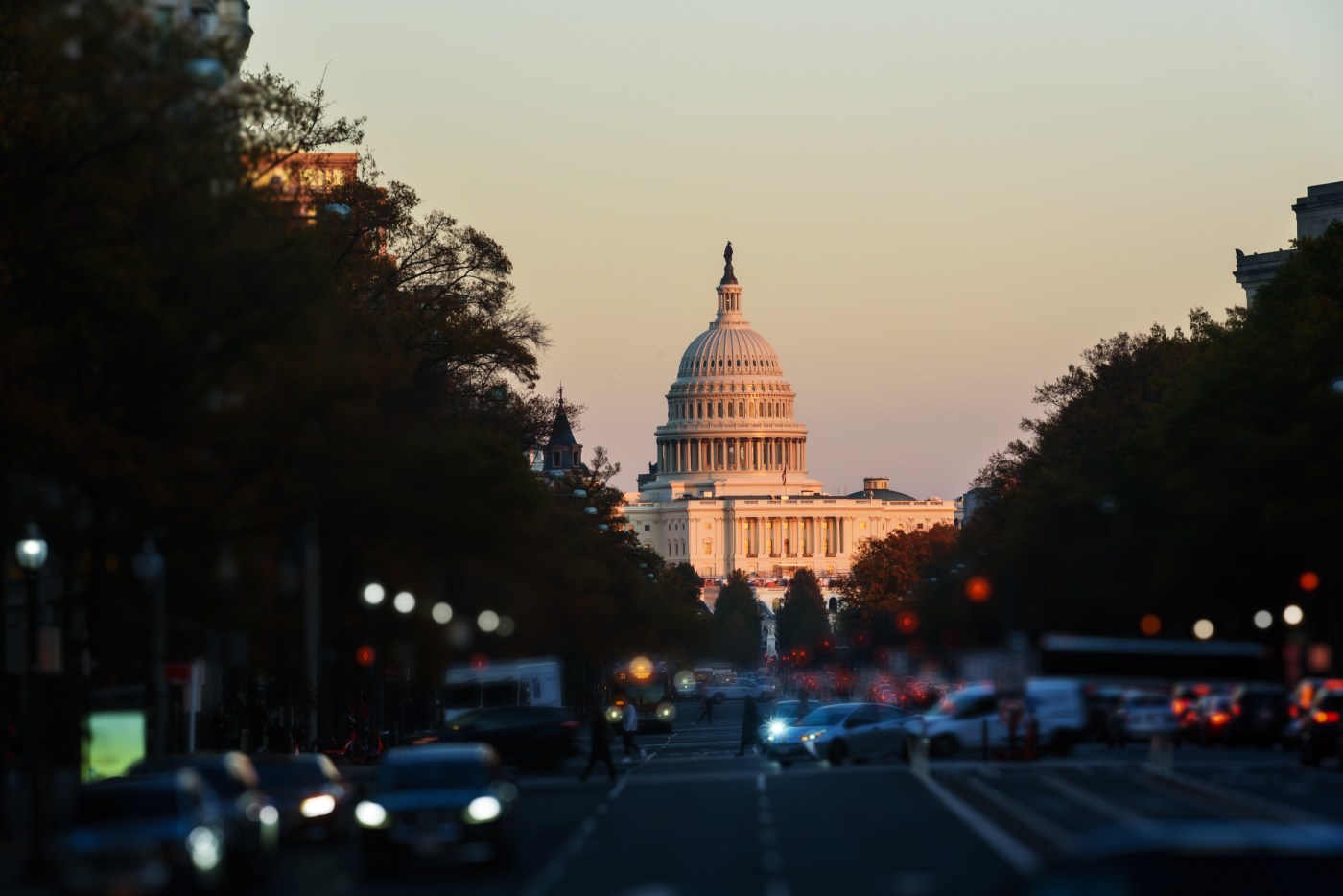
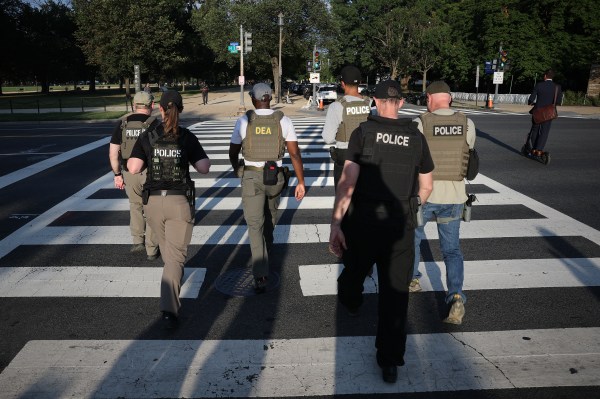
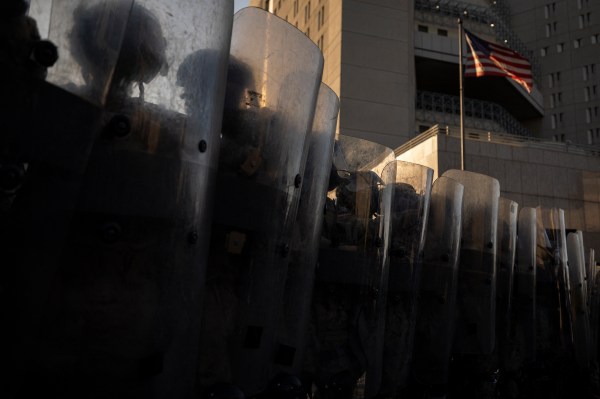
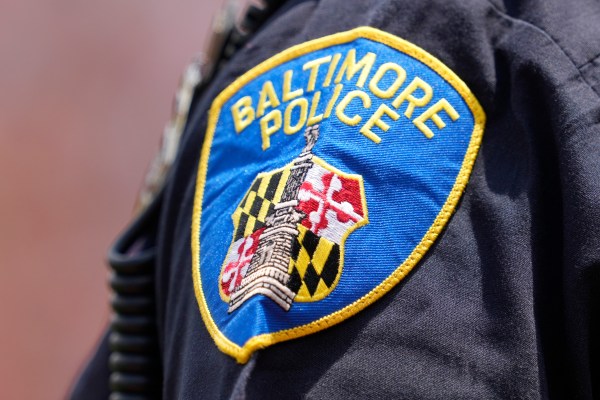

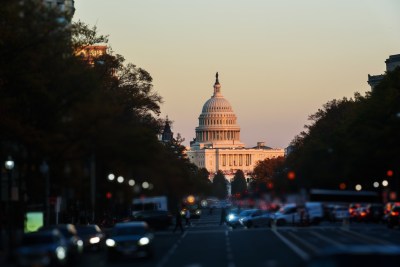
Please note that we at The Dispatch hold ourselves, our work, and our commenters to a higher standard than other places on the internet. We welcome comments that foster genuine debate or discussion—including comments critical of us or our work—but responses that include ad hominem attacks on fellow Dispatch members or are intended to stoke fear and anger may be moderated.
With your membership, you only have the ability to comment on The Morning Dispatch articles. Consider upgrading to join the conversation everywhere.